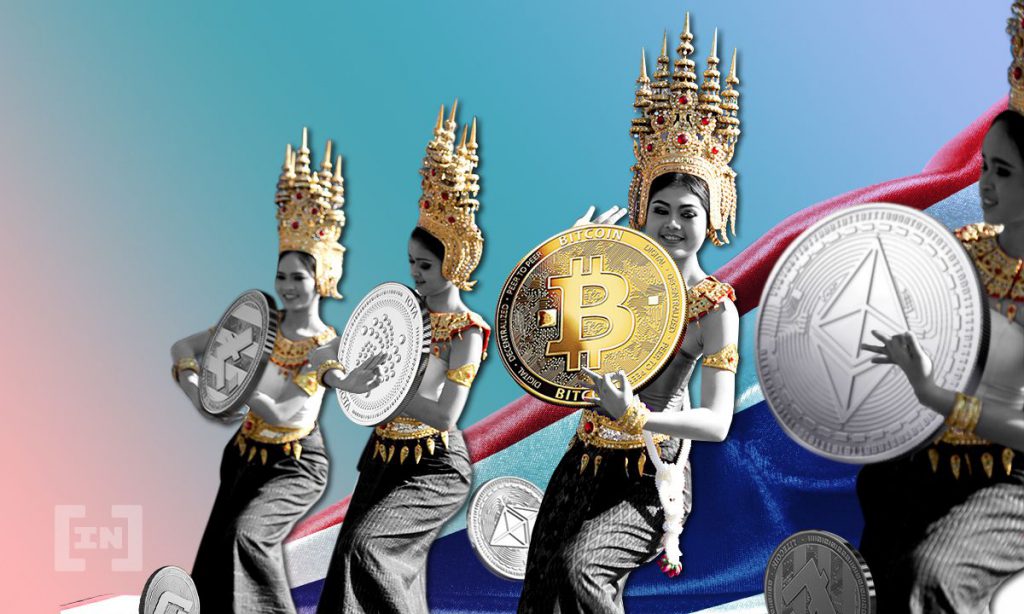Thai Crypto Ban: Will the new regulations affect the crypto industry in Thailand? Yes and no, says Raymond Hsu, CEO and co-founder of Cabital.
Many people in the blockchain industry for the last year have been saying that Thailand will become Southeast Asia’s crypto hub, similar to what the U.K. has been doing in Europe.
Big Thai companies were recently pouring money into Bitcoin mining as the cryptocurrency boom expanded in the country, shrugging off central bank warnings over risk and volatility. The government even scrapped its planned 15% withholding tax on cryptocurrencies, following pushback from the crypto industry. And we saw an important collaboration between the country’s Chulalongkorn University and blockchain network, Tezos, which led to the creation of the country’s first blockchain education and research program.
All the news and events coming from Thailand, from large crypto firms to the government, were saying that Bangkok was on its way to becoming the region’s crypto hub. And then suddenly, some very important news broke out from its regulators that have shaken some investors.
Thai crypto ban: Payments banned
Even though Thailand is leading the world in the proportion of internet users owning cryptocurrencies (20.1% of Thais aged 16-64), the country’s regulator, the Securities and Exchange Commission, announced that it has banned cryptocurrency payments for goods and services – starting on April 1st.
The ban is intended to fend off financial instability, according to Thailand’s Securities and Exchange Commission. The risk of cyber theft was cited as another concern.
But is this a true and complete ban on crypto entirely? No, not at all.
Thai Crypto Ban: It was expected
In fact, I believe that the Thailand regulator’s ban on crypto payments was expected. It’s still normal for governments to protect their fiat currency. It allows them to track illicit activities and to keep their eye on the economy. I get it, Thai officials believe that crypto’s widespread use will harm the country’s financial system and economy.
The good news is that now crypto firms have a clearer idea of what they can and can’t do in Thailand. That is something very important – when regulations become clear, crypto platforms can avoid risk and focus on innovation.
The ban of crypto payments is unlikely to change the future of Thailand’s growing blockchain and cryptocurrency industry. There are already tons of major crypto platforms there that are hiring people and serving their clients with trading services, and this is just the beginning of what we will see to come.
From currency to digital asset
What the Thai government appears to be doing is banning the usage of crypto payments. But they are embracing them instead as digital assets; an activity that they have not banned.
This means that Thai crypto enthusiasts and investors are still able to buy bitcoin and other cryptos, HODL them, along with staking them on a crypto wealth management platform to earn a high yield on their digital assets.
Thai crypto investors are also still free to seek high returns in the world of decentralized finance, including buying NFTs, trading land in the metaverse, and exploring all the fascinating regions of the fast-growing metaverse. So, although cryptos can’t be used to pay for goods and services, people can still use them to increase their wealth and enjoy all the benefits that are deriving from this new digital age.
Thai regulator still supportive of crypto industry
We also want to keep in mind that the Thai regulator said that it would emphasize and support the use of crypto technologies, in line with the country’s wider stance on digital assets. Thailand has been one of the first countries to develop a digital currency backed by its central bank.
Thailand has even relaxed tax rules for crypto trading until the end of 2023 in order to boost the industry, the regulator recently said – demonstrating that the government does clearly want to embrace and develop its crypto industry.
While Thailand’s ban on crypto transactions is a hit to Bitcoin’s principles, the country’s digital asset industry still will continue to grow very quickly over the coming years.
In other words, the prohibition on Bitcoin, Ether, and other digital assets being used for payment is unlikely to dent Thailand’s almost $4 billion crypto industry.
About the author

Raymond Hsu is the CEO and co-founder of Cabital, a leading cryptocurrency wealth management platform. Cabital’s mission is to help empower people from all walks of life to generate high-yield passive income from their digital assets and create a more sustainable financial industry. Prior to co-founding Cabital in 2020, Raymond worked for fintech and traditional banking institutions, including Citibank, Standard Chartered Bank, eBay, and Airwallex.
Got something to say about the Thai crypto ban, or anything else? Write to us or join the discussion in our Telegram channel. You can also catch us on Tik Tok, Facebook, or Twitter.
Disclaimer
All the information contained on our website is published in good faith and for general information purposes only. Any action the reader takes upon the information found on our website is strictly at their own risk.


